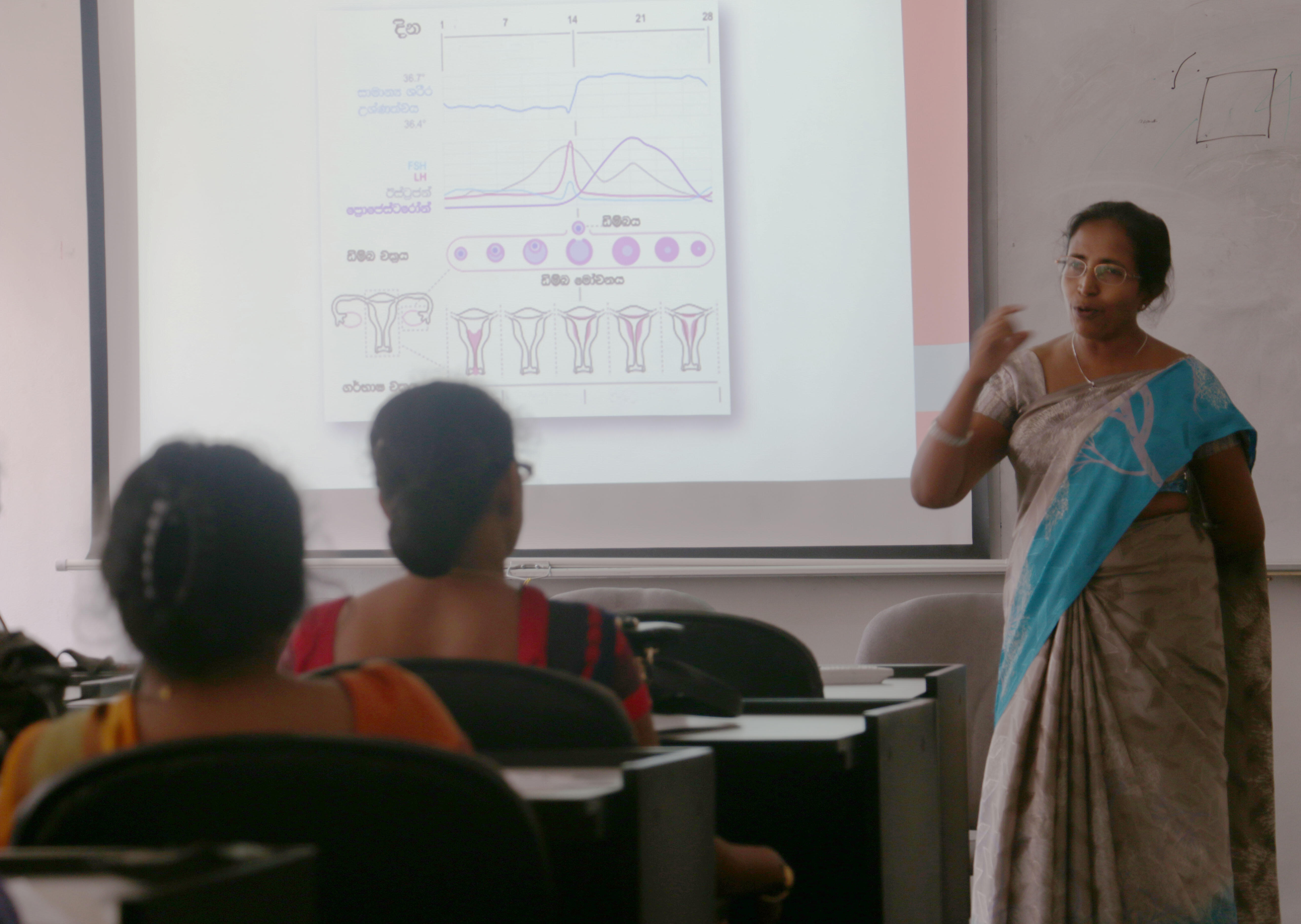COLOMBO: United Nations Population Fund, UNFPA, conducted a Training of Trainers for the lecturers of the College of Education in Sri Lanka on sexual and reproductive health and prevention of gender-based violence.
"I have met adults who do not know where the opening of the vagina, urethral opening and clitoris are located. That is why the sexual and reproductive health education is very important," said Dr. Asanthi Balapitiya of Mental Health Unit of Ministry of Health, conducting a workshop highlighting the biological and social aspects of sexual and reproductive health education.
Participants of the Training of Trainers, the officers of Sri Lanka Teacher Educators Service who teach in 16 Colleges of Education country wide said that they gained comprehensive knowledge on sexual and reproductive health and gender-based violence from the workshops conducted in Sinhala and Tamil mediums.
Assistant Director of Education of the Ministry of Education P.W.N.P. Gunasekara pointed out that the Ministry expected the lecturers of the College would inculcate values related to sexual and reproductive health education and prevention of gender based violence in the teacher trainees who are trained by them, thus creating a direct channel to address the issues broadly through the education system.
Colleges of Education provide pre-service training for the government school teachers of Sri Lanka. The trainees selected from the G.C.E. Advanced Level qualified youth study for a three year diploma including one year internship in a school. They are absorbed to teacher service after completion of the diploma and become the backbone of the trained teacher cadre of the country.
S.R.P. Upul Kumara, lecturer on health and physical education of Pulathisipura College of Education of Polonnaruwa pointed out that the teacher trainers who enter the colleges immediately after Advanced Level examination lack basic knowledge on sexual and reproductive health. "Due to cultural reasons, the sexual and reproductive health sections in school curriculum are not taught properly. It depends on the personality of the teacher," he said.
Ms. Preethi Karunathilaka, lecturer on counseling of Siyane College of Education of Veyangoda said, "I teach the students who have a science education background. But the situation is no better among them too. Even the teacher trainers face the same problem when teaching sexual and reproductive health. We have to be careful to avoid misunderstanding."
The teacher trainers pointed out that imparting knowledge alone would not cause change. They pointed out that teaching methods and materials like teachers' instruction manuals must be developed and the teachers must be trained to conduct sexual and reproductive health education. They opined that similar strategy must be introduced in schools with regard to gender based violence.
"Even though the majority of the trainees in Colleges of Education are female, males occasionally tend to dominate in common activities. However, the good practices against gender based violence in the college inspire them throughout their entire career," Preethi Karunathilaka pointed


